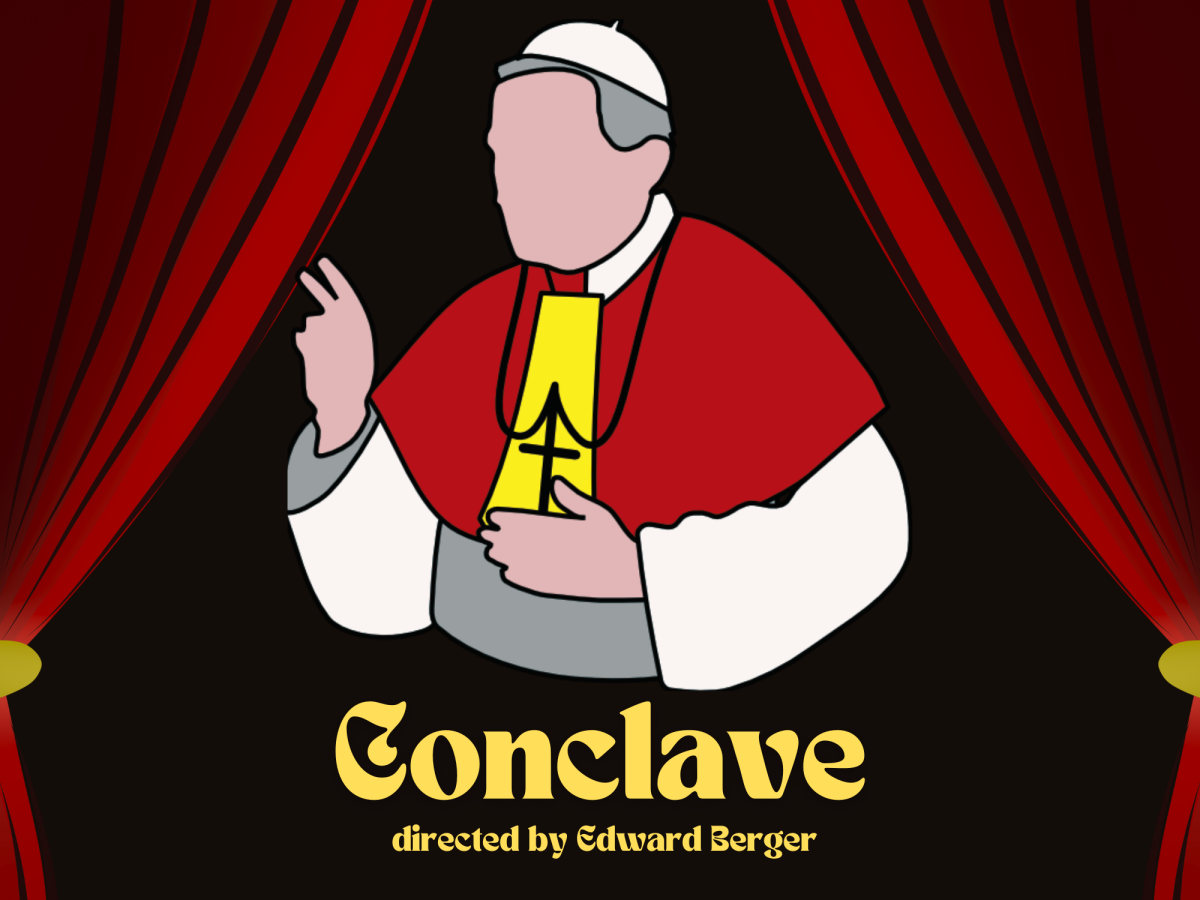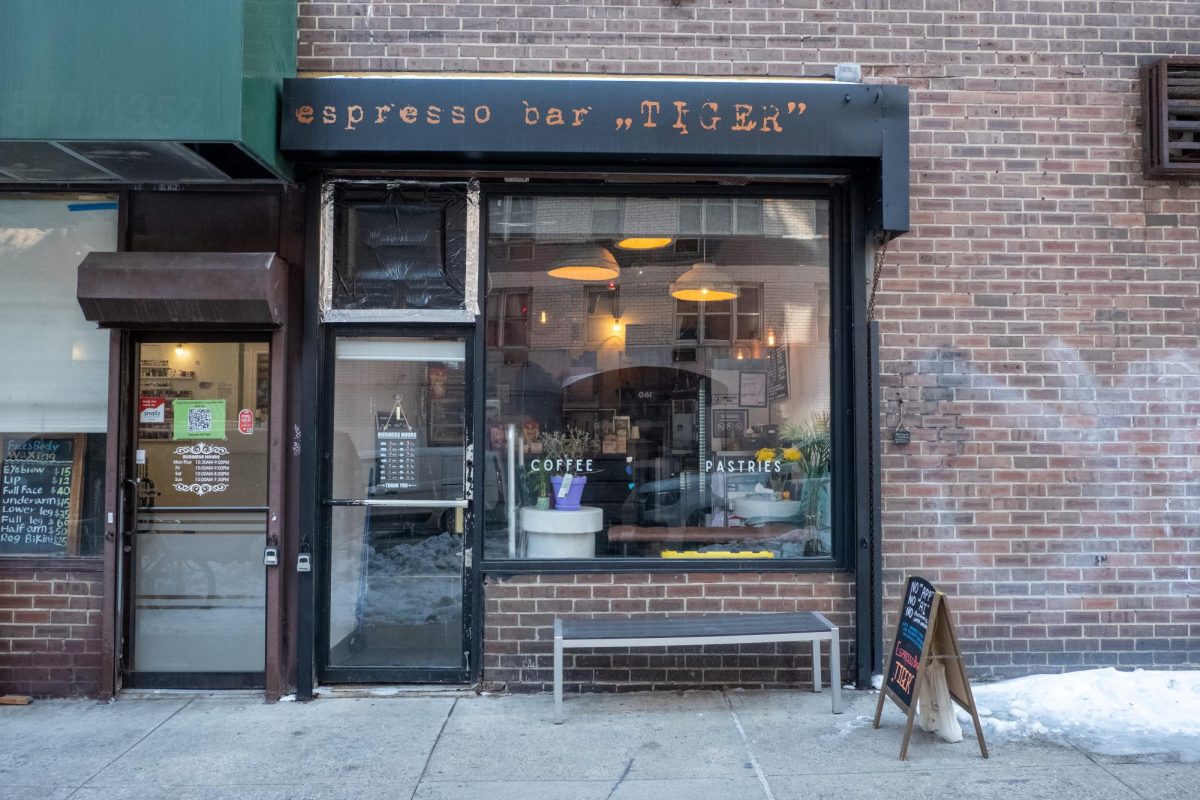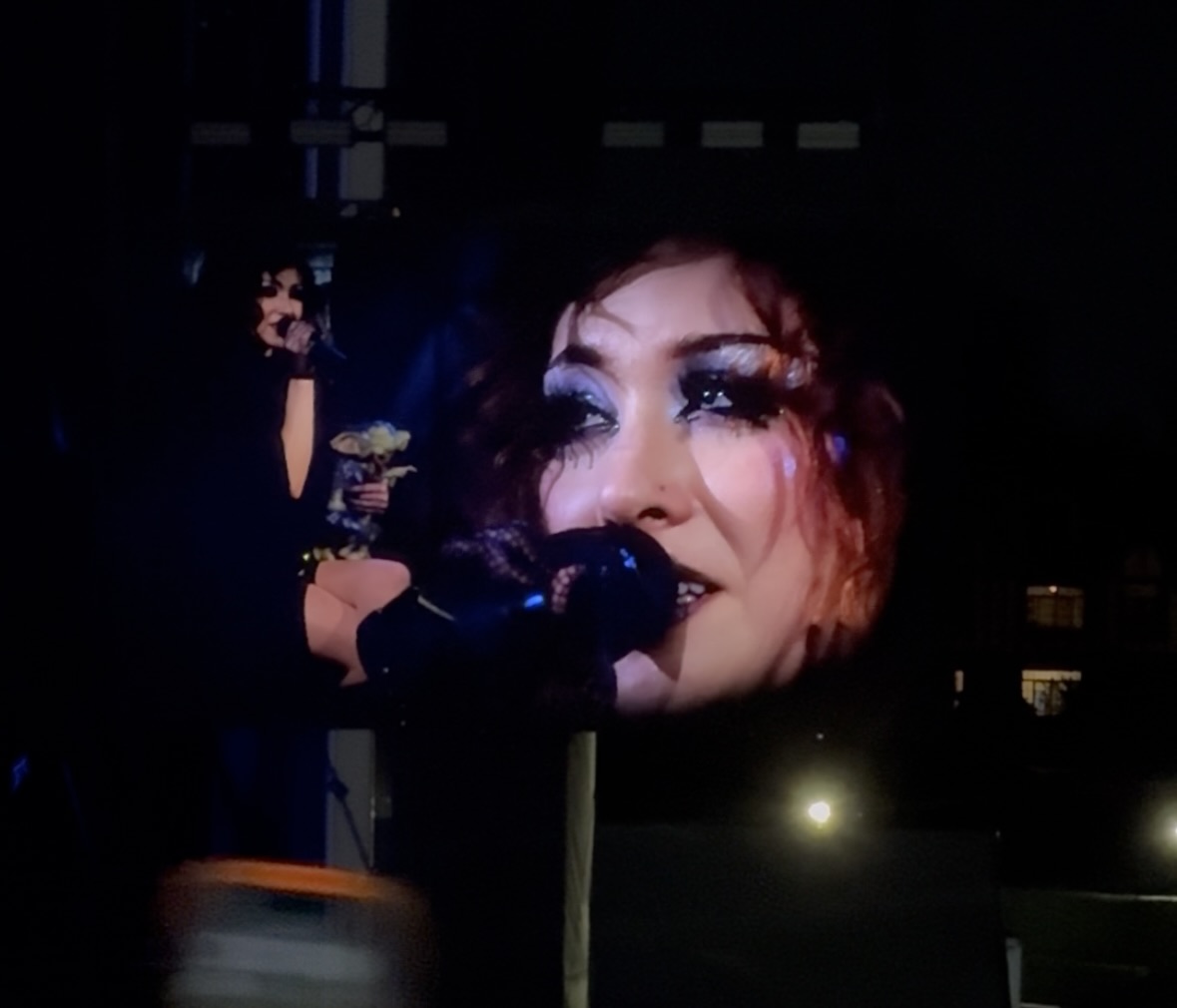What kind of heart is worthy of determining the future of a two-thousand-year-old religious institution? “Conclave,” striking and provocative, is inspiring critics to say it’s “sinfully entertaining,” and claiming they see awards in its future.
“Conclave,” directed by Edward Berger, is a multilayered mystery. The story is about discovering who will become the new pope, but the soul of the film delves into the mysteries of human nature: doubt, intolerance, and humility.
“Conclave” begins with the sudden death of the Holy Father, leaving the College of Cardinals scrambling to elect a new leader for the Catholic Church. The task falls to Cardinal Thomas Lawrence, played by Ralph Fiennes, whose character must carry both the weight of this position’s responsibility and his faltering faith.
As the dean of the conclave, Lawrence is charged with overseeing a gathering of cardinals from all over the world, each with their own ambitions, ideals, and flaws.
Among them are Cardinal Bellini, played by Stanley Tucci, a progressive voice calling for a modernized Church that engages with the world’s relevant issues.
Cardinal Tedesco, played by Sergio Castellitto, longs for a return to the traditional Latin Mass and its 1960s’ ideals that reject inclusivity and promote sexism. And there is Cardinal Adeyemi, played by Lucian Msamati, a cardinal who would be the first black pope.
As the ballots are cast and tensions rise, secrets emerge forcing Lawrence to confront his personal spiritual conflict and subsequently the conflict circulating the walls of the Sistine Chapel.
The future of the church is in their hands, and in seeing the weariness and desperation in Fiennes’ eyes, the audience understands the heaviness of the situation. Lawrence confesses his doubts, but instead of being ashamed, he challenges the church to doubt with him for certainty is the antithesis of faith.
Certainty is divisive, whereas doubt elicits humility and a wonder that can open a mind to new ideas and heart to different people. Cardinal Vincent Benitez, played by Carlos Diehz, reinforces this idea later in the film when he exhibits righteous anger towards his self-serving colleagues.
The church is not just representative of tradition, it is the future. Therefore, it must answer Lawrence’s call to action and openness by remembering the vulnerable and the ostracized.
The entire film is saturated with emotional depth, but in this moment of confrontation between Cardinal Lawrence and the conclave, he demonstrated a level of authenticity and honesty that calls for radical change in the church. But past the Vatican walls, it’s a call to action for the modern world.
Beyond the cerebral dialogue that unveils the tension between tradition and progression or doubt and faith, the cinematography alone deserves its own spotlight. Cinematographer Stéphane Fontaine’s attention to details creates foreboding and atmospheric shots.
The lighting and colors in his frames alone could leave one satisfied feeling as though they have just caught a glimpse of a painting at a museum. The layers of the story are also unassumingly illustrated through the visual metaphors and composition.
The rich reds of the cardinals’ robes against the purity of the marble rooms mirror the tension between tradition and progress. The aerial shots of Vatican City suggest the stillness hiding the turmoil inside.
“Conclave” is not just something to watch; veteran actors Tucci and Fiennes invite you to experience the film. When Fiennes is agonized by the state of the church, and possibly the world, the audience grieves with him.
Both Tucci and the audience desperately plead for their friend to become the pope so that the Church does not fall into the hands of a man with archaic and wounding ideals.
Whether it’s the sheer artistry of the production, the spiritual themes, or the political machinations of the film, these elements draw people with diverse interests into the story.
Compared to recent fast-paced movies, it is a refreshingly patient and multilayered film that will challenge watchers to look inward or simply leave them in awe of its brilliance.








